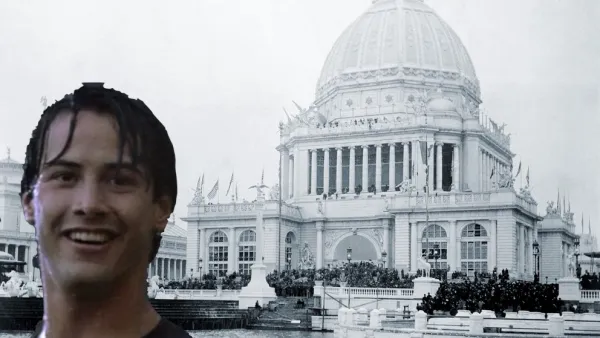Blair Kamin looks at "Go to 2040", a new regional plan for the Chicago area that he says has few goals to get excited about and "reflects an era of scarce resources."
Kamin suggests that the plan reflects an era of "lowered expectations about what planning can achieve."
The plan includes stabs at smart growth, but seems to place a considerable influence on road maintenance. Kamin says it calls for "a new emphasis on fixing existing roads, raising the state gas tax to fund road maintenance and transit, and increasing the Chicago region's share of the state's road funding pie."
Kamin quips, "the message from Go to 2040 seems to be: 'Make no big plans. We have no money.'"
FULL STORY: Regional planners unveil vision for Chicago area in 2040

Analysis: Cybertruck Fatality Rate Far Exceeds That of Ford Pinto
The Tesla Cybertruck was recalled seven times last year.

National Parks Layoffs Will Cause Communities to Lose Billions
Thousands of essential park workers were laid off this week, just before the busy spring break season.

Retro-silient?: America’s First “Eco-burb,” The Woodlands Turns 50
A master-planned community north of Houston offers lessons on green infrastructure and resilient design, but falls short of its founder’s lofty affordability and walkability goals.

Test News Post 1
This is a summary

Analysis: Cybertruck Fatality Rate Far Exceeds That of Ford Pinto
The Tesla Cybertruck was recalled seven times last year.

Test News Headline 46
Test for the image on the front page.
Urban Design for Planners 1: Software Tools
This six-course series explores essential urban design concepts using open source software and equips planners with the tools they need to participate fully in the urban design process.
Planning for Universal Design
Learn the tools for implementing Universal Design in planning regulations.
EMC Planning Group, Inc.
Planetizen
Planetizen
Mpact (formerly Rail~Volution)
Great Falls Development Authority, Inc.
HUDs Office of Policy Development and Research
NYU Wagner Graduate School of Public Service


























